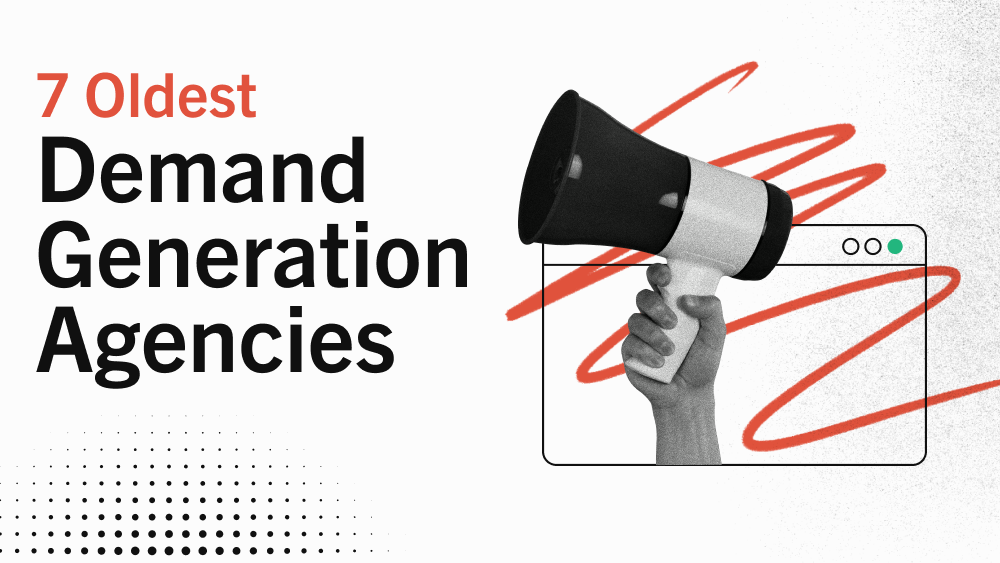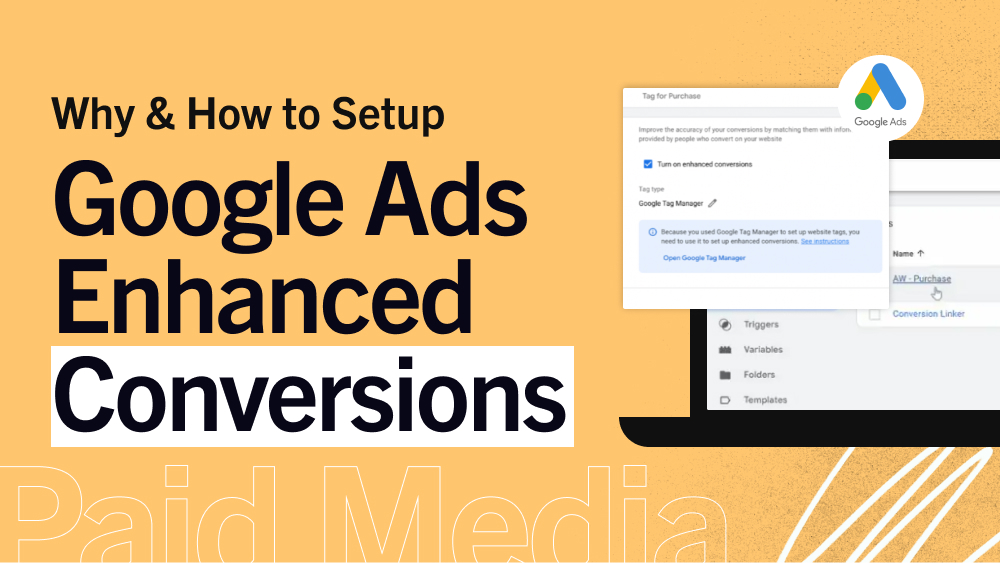The Complete B2B Marketing Guide

B2B marketing is no easy task. There’s a constant battle between: do I target my exact buyer with account-based marketing or do I go after the larger audience in the hope that my end buyer finds me?
The reality is that generating demand for your B2B service or product has become a juggling act of meshing different tactics across different mediums to increase marketing qualified leads (MQLs) and fill up your pipeline.
Unfortunately, as you are doing your research there isn’t one simple resource that can supply you with new ideas and tactics to execute.
The purpose of this piece is to give you actionable ways to execute a B2B marketing and demand generation strategy over a six month period.
- Part 1: Building Your Team
- Part 2: Understanding Your Audience
- Part 3: Focusing Your Brand
- Part 4: Content Marketing
- Part 5: Search Engine Optimization
- Part 6: Pay Per Click Advertising
Grab a coffee, take out a notebook, and allow yourself the freedom to start formulating what parts of this approach can help you and where you can focus on other things.
Let’s begin.
Part 1: Building Your Team

The team you build should be based on your objectives: drive leads, increase awareness, generate email signups, turn trial users into paying users, etc. I understand that if you are currently part of a company, you most likely have already built a team (or are part of one) and moving pieces can be difficult.
I have taken that into consideration and tried to build an “ideal” B2B marketing team full of roles you can copy or transition members of your team into.
People Every Growth Driven B2B Marketing Team Needs
If you are passionate about growing and need to generate more demand, filling the roles below with in-house talent or agency experts is a must.
Person 1: VP of Marketing

The role of the VP of Marketing is to properly align the daily actions of his or her team with the executive team’s overall objectives. Making sure that every individual on the team is clearly aligned with the goals of the entire executive team ensures that budgets grow and “results” are truly perceived as such.
Depending on the personality of the VP they can also take on the role of brand evangelist. Brand evangelism is a critical part of driving awareness and directly influences pipeline growth.
Here’s a sample of daily inputs for a high-performing VP of Marketing:
- Assign Daily Objectives For Each Team Member
- Run Weekly Performance Meetings and Manage Quotas
- Evangelize Brand
- Speaking
- Podcasts
- Guest Posting
- Quora
- Industry Forums
- etc.
- Constantly Communicate Success to Executive Team
- Hold Agencies Accountable
While this is not an exhaustive list, with the roles outlined below, these are critical inputs that the VP of Marketing must perform for high-growth.
Person 2: Account Based Content Marketer

For B2B, I believe this might be the most critical role. It’s often neglected and over-thought, in fact, here at Directive we had completely overthought this role.
The account based content marketer creates content for your end buyer, that’s about your end buyer’s market and promotes it to your end buyer. For example, we are building a piece on: “The Average Organic Traffic Cost of Series C Funded Firms”. Not coincidentally, we have a strong portfolio of Series C funded firms and would like more clients in the B2B software space.
It’s the account based content marketer’s role to not only craft this piece but to also promote it directly to the marketing departments at these Series C funded firms. And, because time is of the essence, we leverage a virtual assistant to build this data and gather this contact information, thus keeping us lean and financially feasible.
Person 3: Marketing Manager

The marketing manager is an interesting role. It’s by far the most common role, but also one of the least valued. I would not say that it’s devalued on purpose, but because they are leveraged as a utility player who does things like:
- Edit content
- Do email marketing
- Film videos
- Design featured images
- Write copy
- Print marketing material
- Update CRMs
- etc
They can often be misused. My argument would be that if you were to outsource or give all of those tasks to an intern your marketing manager could function as a mini VP and drastically help you hit your growth goals. Be wary of what you assign to a marketing manager or as a marketing manager what you say yes to, as it will greatly affect the value of this role…everything takes longer than you think.
Person 4: Paid Search Specialist

While many tactics can take 6+ months to generate revenue, the paid search role can have a fairly immediate impact on your pipeline. This role is critical in that it allows you to not only increase revenue, but also manage your cost per acquisition in a way that keeps more cash on hand.
This person should have a solid understanding of how your financials work, while also have a creative side that allows them to think beyond just the AdWords interface.
Here are some tasks they might do on a daily basis:
- Split test ad copy
- Launch new campaigns
- Build single keyword ad groups
- A/B test landing pages
- Optimize bids
- Time of day
- Location
- Device
- etc
- Review landing page and provide recommendations to designer
Make sure your paid search specialist or agency is doing at least all these things if you want to truly maximize your capital.
Person 5: CRO Focused Designer

If you are spending a cent on advertising then this is your secret weapon. Far too many people forget the value of conversion rate focused design. They say it’s important, but they don’t actually hire a designer. I would urge you to fill this role internally or externally and follow best practices on all your landing pages.
We use Unbounce to build our landing pages and have found that designers love the functionality of this platform. They also have terrific support and are able to integrate into most every CRM so that your data stays intact.
Remember, if you don’t want to use development hours, using Unbounce is by far your best option.
The CRO focused designer can also be doing other vitals tasks for your demand generation campaigns such as:
- Create display ads
- Build assets for content
- Design landing pages
- Design emails
- Improve sales assets
- etc
The quality of your design says a lot about the value of your brand.
Person 6: SEO Specialist

Data needs to drive your decisions as you build your B2B marketing and demand generation team. I am not referring to “Big Data” or saying that you need to spend 30 hours building “dashboards”. Instead, I am advocating for great keyword research to understand the needs of your audience as it pertains to the product or service you provide.
If you do not understand the volume of certain searches (aka demand) as well as the competitiveness of a market or its opportunity, you are left in the dark as to knowing which opportunity is best to pursue. In my opinion, an SEO is far more valuable than “ranking” your website. They are the quarterback for all your efforts that hit a search engine and should be educating your other departments of following simple best practices when doing PR and other forms of offsite marketing.
As a self-proclaimed SEO myself, I believe that an SEOs role spans far beyond the technical side of things. Here are some daily tasks your SEO should be performing for high growth:
- Link building
- Content marketing
- Content promotion via target outreach
- Keyword research
- New opportunity identification in SERPs
- Improving old content
- Auditing development team changes
- Reporting on analytics
- etc
While many of these things might be outside technical SEO, they are critical to the organic search growth of your business and I believe fall directly within the realm of SEO.
Person 7: Developer

You can only rank for keywords or drive leads for your campaigns with pages you have on your site. In other words, no page=no rankings/leads. It’s critical that if you are a software business that all your development hours are not tied up within your own product and that you have some hours available for website changes. I would argue that the quality of your website communicates to future customers the quality they can expect from your software.
It’s hard to picture anything more detrimental to your digital pipeline growth than a website with technical flaws. Here are some things you can have your developer doing that can grow your MQLs:
- Creating interactive content
- Working with designer to launch new core pages around benefits, industries, and solution
- Fixing site speed issues
- Finding bugs that hurt conversion rate
- Improving purchase funnel
- etc.
The developer is a critical part of bringing creative and other marketing ideas to life. Make sure you have this resource and role available.
Person 8: VA as Data Scientist

Virtual assistants are far to often viewed as inferior or unable to understand. Many argue that they have to spend more time training the VA then it would take them to do it themselves. I would argue that this is only because you are doing it wrong.
At Directive, we use VAs to help us with our data gathering and link building. For example, here’s how we create account based content:
- Choose which audience we want to target
- Identify their greatest needs and interests
- Make sure we can promote content to them
- Select content theme
- Have VA gather data about our audience
- Create content that ties into the solution we provide to our audience
- Have VA get contact info for entire marketing department of our audience
- Account based content marketer publish content
- Account based content marketer promotes content individually to each member of our audience’s marketing department and CC’s business development
- Set meetings
- Close deals
Without the VA we could not accomplish this within our budget at scale. If you have multiple things you want a VA to do that are each uniquely different make sure to only hire a VA who specializes in that unique task. VAs are not renaissance men. They are specialists and should be used as such.
Part 2: Understanding Your Audience
We’ve built our team and each person understands their role. Now it’s time to document the firmographics of your target market and build personas and psychographics of your audience for the entire organization. First, let us dive into firmographics.
Firmographics

Firmographics should allow your marketing and sales team to better understand your audience and properly reach them via advertising, sales, content, and more.
You should be able to document your ideal customer profile by:
- Industry
- Location
- Employees
- Revenue
- Technologies
- Funding
There are a lot of data sources our there that can help you gather this information. As a first step, review your top accounts. Take an index of all their firmographics. How many employees do your best customers have? What technologies do they use? Where are they located? As you start to ask questions like these, you can start to define your ideal account.
Here are some tools that can help with firmographics:
Next, let’s break down the key personas in your target companies.
Personas

Personas will allow your team to customize their message, implement account based marketing, and scale up your outreach/engagement.
As a first step, it’s critical you outline and understand the buyers involved at your target accounts. As an example, at Directive Consulting, we sell into three different personas.
- CEO
- VP of Marketing
- Marketing Manager
By understanding this, we can start to map out the following critical aspects of understanding our target customers interests, preferred mediums, frequency, and favorite social channels.
Here’s an example of what this looks like for us:
- CEO:
- Interests: Opportunities Lost or New Opportunities
- Mediums: Podcasts, Books
- Frequency: Weekly
- Social: LinkedIn, FB
- VP of Marketing
- Interests: Data, Benchmarks, Competitors, MQLs
- Mediums: eBooks, Podcasts, Blogs
- Frequency: Monthly
- Social: Twitter, LinkedIn, FB
- Marketing Manager
- Interests: How-To, New Tactics, Educational
- Mediums: Video, Blog, Podcasts
- Frequency: Weekly
- Social: LinkedIn, FB, Twitter
Based off of this info, we are able to build our content strategy, craft topics, and understand how to best reach each member of their buying team.
Part 3: Focusing Your Brand
The perception of your value of your brand to your target customer is critical to the success of your B2B marketing and demand generation efforts. If you are not perceived as the most valuable option for your target market you risk being marginalized to a commodity desperately competing on price.
At Directive, we recently went through this entire process of focusing our brand.
It’s not easy, in the immediate, you alienate much of your previous market potential and are left struggling to regain lead volume. You are in a new market and taking share away from competitors is difficult.
But, if you can survive and create content fast enough, you are able to offer a far more focused value proposition to your target market while also aligning internal resources. From this alignment, you can improve the overall value of your product/service, decrease churn, and increase targeted lead volume.
Part 4: Content Marketing
Relevant and exceptional content is critical to the success of your business. I say “business” because great content makes an impact on every department in the organization from support related content to community content to sales assets to more typical marketing content. Each type and piece play an impactful role in B2B marketing.
Types of Content

In this section, we are going to take a deep dive into the various types of content you need to be creating to take search engine market share, build an audience, or drive leads.
Type 1: Core Website Content

For our clients, we like to start here. We define core website content as pages on your website convey/sell the value of your product or service. These pages are often based around your most valuable keywords. Keywords that are directly related to how you make your money and often have the largest volume.
As an example, these pages are categorized usually as:
- Services
- Product
- Features
- Benefits
- Industries
- Solutions
Within these categories, you want to isolate your sub-services and individual value offerings you provide that you know your target customer is looking for. So at Directive, this looks like:
- Services
- SEO
- Marketing Strategy
- Link Building
- Keyword Research
- Enterprise & B2B
- Technical SEO
- Local SEO
- eCommerce
- SEO
From this framework, we are able to go after our largest keywords on our core service page, while we are also able to rank for the sub-services we provide within that.
Remember, you can only rank for keywords that you have pages for.
Type 2: Blog and Resource Content

After you have your core content in its place, we pivot into crafting exceptional blog and resource content. It’s essential that you have content that your audience can easily consume and interact with your brand on.
This content should serve three purposes:
- Rank for keywords with high volume and valuable intent
- Be leverageable by sales
- Grow awareness by being inherently shareable
If your blog content is exceptional and you have at least decent links pointing to it, then it will rank, it will increase your sales team’s close rate, and it will naturally earn social shares.
We have found that the following types of blog and resource content perform well for B2B:
- How to
- Guides
- 15 Ways
- Why
- What is
From here, you can begin to craft titles that will garner click thru rates and appeal to your brand’s value proposition.
When you are crafting this content, make sure that you are internally linking to other aspects of your site and that you go into other older posts and point links back to the latest piece.
No piece of content should exist on an island.
Now, if you do not naturally get eyeballs on your content. We have crafted an innovative content promotion strategy that we call the “Egyptian Method”. I have briefly documented it below:
- Post the finalized blog piece to client’s blog
- Advise client to post to all personal LinkedIn, Twitter, & Facebook Accounts at organization or marketing team
- Use Pitchbox to identify 25+ recent blogs posted about the keyword
- Direct email the editors/writers of those posts to promote blog piece
- Reach out to 15 influencers that you identify on Followerwonk or … via Twitter DM
- Submit re-post to industry Forums
- Find questions it can be an answer to in industry QA communities
- Add it to Sub-Reddit’s in industry
- Share to 10+ Facebook Groups on Blog Topic or Industry
- Share to 10+ Google+ Groups on Blog Topic or Industry
- Identify 15 high-volume Quora questions that the post answers
- Make sure client emails blog posts to email list
What’s the point of crafting exceptional content if you don’t have a plan to promote it?
Type 3: Lead Gen Content

Content as a lead generation asset is an essential part of your sales funnel for B2B. Most traditionally, lead generation assets are grouped as:
- White Papers
- eBooks
- Reports
- Surveys
At Directive, we have actually seen the most success, however, with a different type of asset: video.
By gating our clients’ video content, we have been able to offer a low-friction asset and pump the pipeline with warm leads.
A trick we use to better correlate your eBook signups into actual leads instead of buyers simply looking for content is to add one more field to form. This field says: “Are you interested in XYZ’s Services/Product?” If they select “Yes” then (using conditional logic) have a final form field show up at the bottom asking for their phone number.
With this approach, you decrease sign-up friction for users not currently interested in your product or service, but you increase the likelihood of those who interested turning into customers.
Don’t forget to have a drip campaign setup through your email provider (we use Mailchimp). This way, you increase the potential of even your educational intent converters to turn into customers over time.
Type 4: Account Based Content
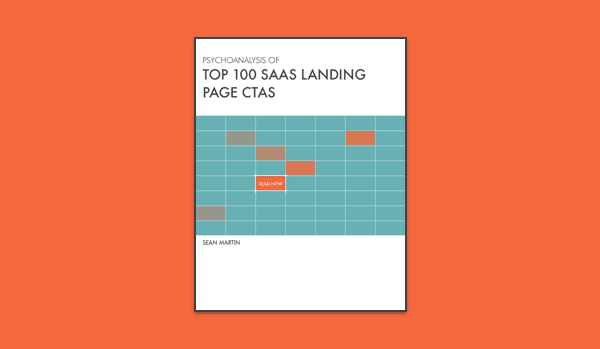
Account based content, as defined by Directive, is content that is about your target market that you directly promote to the buying team of each account that the topic pertains to.
To give you an example, you can see our approach below:
Create and promote content to the same people our sales team is targeting CEO, VP of Marketing, or Marketing Manager of a B2B company. The content should be so exceptional that they share it with their teams/audience and directly contact us for their B2B search marketing needs.
Each piece of content we create for us or for other sites should have a logical connection to the services and sub-services we sell at Directive.
We will be crafting content about our B2B audience and for the B2B clients we want. Every weekly piece of content should have a built in strategy for promotion that is agreed upon before creating.
You may be wondering what this looks like at your own firm. To provide even more context, here are a few sample topics:
- Auditing the Link Profile of Over 100 B2B SaaS Firms: Winners and Losers
- Benchmark Study of B2B Site Speed Across 1,000 Sites
- Average Content Publishing Frequency for B2B + Recommendations
- Breaking Down B2B Content Promotion in 50 Steps
- Average DA of Series C Funded Companies Compared to Organic Traffic Cost
- Ranking the Organic Traffic Cost of the Fortune 500
Each of these pieces has a built-in purpose. It’s to be used as a lead generation campaign that focuses on “helping them” and providing insight to our target accounts before “selling them”.
Type 5: Thought Leadership Content
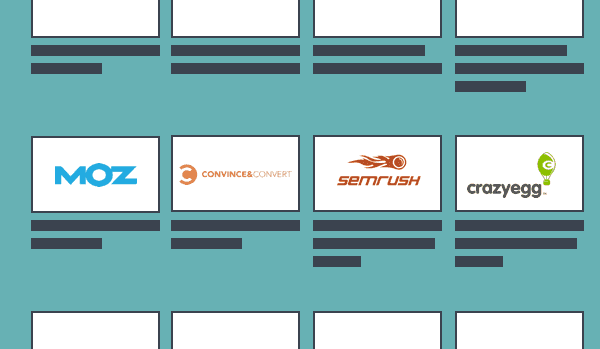
Thought leadership can be the savior of your demand generation efforts. By properly identifying the blogs or content your audience consumes, you can evangelize the value of your product or service, increase the domain authority/ranking potential of your site, and most importantly you can increase your marketing qualified leads.
We wrote a very detailed piece on how you can guest post for your industries top blogs. As you go through this piece, you will have all the different tactics and approaches necessary to be successful.
Here are a few ways you can build thought leadership through:
- Speaking
- Guest posting
- Podcasts
- Youtube
- Expert interviews
- Quora
- LinkedIn Groups
- SubReddits
- Industry Forums
The key for any one of these items to be successful is consistency. By consistently publishing over an extended period of time you will be able to build an audience. With that audience, each additional piece of content is exponentially more valuable. It will naturally earn shares, links, and leads.
As an expert tip, we have found that you do not want to be publishing content for your industry so much as for your target audience. This seems so obvious, but we ourselves were guilty of this.
Let me explain.
We would craft content consistently for sites like Moz, Wordstream, Ahrefs, Kissmetrics, Crazy Egg, PPChero, and more. Yet, we didn’t get leads. Why? Because we were writing to people who did what we offered. Yes, the blog was about our service, but the audience was wrong.
Now, we look at the sponsors of the conferences our audience attends. We then scrape that list, get the editors info, and pitch writing for them because we know our end audience reads their content.
The same principle applies to speaking. When you speak at an SEO conference you speak to an SEO audience. You are far better off speaking at an industry conference, or conferences that are more generic and related to your vertical.
Type 6: Community Content
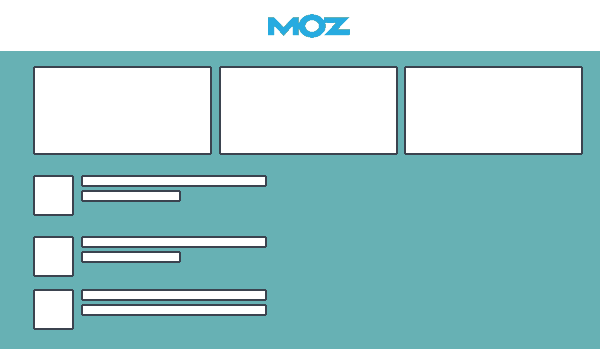
Community content focuses on being a resource for your customers. As a B2B service company, we do not have a large enough client base nor overall traffic for this type of content to work for us, however, for some B2B SaaS firms, this can be where they drive the majority of their traffic.
For example, let’s take a look at Moz. They are a B2B software provider of SEO services. They have a community section on their site that allows users and people interested in marketing to ask questions. It’s a tremendous driver of traffic to their site and it allows them to “help” instead of “sell”.
Within Moz’s /community/ subfolder, they house their webinars, QA forum, and conferences. This is a great to also align your marketing team. In the roles mentioned above, we did not include a community manager as most companies are not in a place where we’d recommend this. But for those who have an audience, I would highly encourage you to have that community manager help organize the digital side of this content type and manage the community.
They key here is that they have terrific organic traffic already and that they have an established brand. If you have one of these already, this a terrific type of content that you can look into launching.
Part 5: B2B Search Engine Optimization
Search Engine Optimization (SEO) plays an essential role in your B2B marketing and demand generation campaigns. SEO allows you to generate leads without any initial cost per click, decreasing your overall cost per acquisition, increasing your profit margin, and ideally building your cash on hand.
While this all sounds great, the most difficult part of SEO is waiting. It’s not an overnight success. It’s not a Superbowl commercial of demand generation. Instead, it is a culmination of small efforts coming together in a big way.
To help spark action and ideation for your own campaigns, I have broken down the essential elements of a successful B2B SEO campaign below:
- Technical SEO
- Keyword Research
- Content Marketing
- Digital PR/Link Building
Let’s go deeper!
Element 1: B2B Technical SEO

The foundation of SEO success comes from a great technical audit. While link building, content, and keyword research play a part it’s critical that your website’s technical SEO is not what’s holding you back.
When you are doing a technical SEO audit for a B2B site it’s critical you take into account the following aspects (this is not an exhaustive list, but a great foundation):
- Quick Overview
- Checked indexed pages
- Reviewed number of organic landing pages in Google Analytics
- Searched for brand and branded terms
- Checked Google’s cache for key pages
- Did a mobile-friendly test
- On-page optimization
- Optimized title tags
- Analyzed titles for click through rates
- Checked for missing page titles and descriptions
- On-page content includes the primary keyword phrase multiple times
- Checked for significant amount of unique content on key pages
- Corrected keyword in H1 tags
- Optimized Image file names and alt text
- URLS are descriptive and optimized
- Content
- Analyzed homepage
- Optimized core pages
- Checked site for real and substantial content
- Audited keyword targeting
- Checked for keyword cannibalization
- Looked for conversion related content
- Checked on formatting of content
- Audited blog headlines for CTR
- Duplicate Content
- Made sure of one URL for each piece of content
- Did Google search to check for duplicate content on other sites
- Checked sub-domains for duplication of content within our own sites
- Analyzed for duplicate content on secure version of site
- Checked for print version
- Accessibility & Indexation
- Improved robots.txt file
- Audited impact of Javascript, cookies, and CSS
- Viewed site as Googlebot
- Found, fixed, and checked all server errors
- Improved XML Sitemaps and submitted to Google & Bing
- Checked to make sure that meta robots noindex tags did not exist
- Site Architecture and Internal Linking
- Audited internal linking and improved
- Analyzed site for vertical and Horizontal linking structures
- Checked that internal links to most valuable content exist
- Made sure that footer links to most valuable pages
- Optimized internal links for anchor text of pages ranking on page 2
- Checked for broken links and fixed
- Technical Issues
- Audited site for proper use of 301s
- Checked to make sure site avoids improper redirects
- Minimized and audited redirect chains
- Audited usage JavaScript
- Checked usage of iFrames
- Made sure that Flash is not hurting site
- Checked for errors in Google Webmaster Tools and audited
- XML sitemaps are properly executed
- Audited the implementation of Rel canonical link tags
- Checked that the site uses absolute URLS instead of relative URLs
- Site Speed
- Checked on load times for core pages
- Analyzed usage of compression
- Looked into caching
- Suggested recommendation on image optimization
- Checked on the minification of CSS/JS/HTML
- Provided hosting recommendations
- Mobile
- Reviewed mobile UX and provided suggestions
- Checked on analytics for mobile site
- Audited usage of dynamic serving of content
- Looked into usage of mobile redirects
- Checked on the markup and relationship of mobile and desktop
- International
- Reviewed international versions of URL
- Enabled country based targeting in webmaster tools
- Implemented hreflang / rel alternate as needed
- Provided recommendations on unique copy for each language
- Analyzed usage of native language in URL structure
- Analytics
- Made sure that analytics code is on every page
- Audited for only one instance of GA property on a page
- Checked that internal searches are being tracked
- Setup demographics tracking
- AdWords and analytics are properly linked
- Excluded internal IP addresses
- Setup event tracking for key events
Take your time and be thorough. By following this checklist, you can make a large impact on your overall organic lead volume and ROI.
Element 2: B2B Keyword Research

In order to generate demand, you often times must first understand the supply. Keyword research is simply the new version of audience research. By understanding what your target market searches and how often, you can prioritize your copy, content, advertising, and more.
Great keyword research expands beyond volume and terms. Thorough keyword research not only tells you volume and terms but also, it highlights things like competition and opportunity.
Keyword research should take into account if there are featured snippets, search ads, shopping ads, “people also ask”, top stories, and other search engine results page features. We use Moz’s Keyword Explore to identify these opportunities as well as SEMrush to understand existing keyword rankings.
Element 3: B2B Content Marketing

While we have touched on types of content for B2B marketing, the goal of this section is to dive into the unique value content marketing provides for B2B SEO.
Exceptional keyword research is just the start. Once you have done the research the hard work truly begins, creating the content. You can only rank for keywords you have information for.
In general, I recommend that most B2B firms start by developing their core content before expanding into their blog, resource, and long-tail content. Core content is the content you create for how you make money: products, services, solutions, benefits, industries, etc. This content is usually lower in the buyer funnel and contains critical info that most buyers want to review before deciding to give you their contact info.
To organize you and provide an initial system that you can follow, I have outlined a sample of elements from our content project document below:
- Overview
- Current Assessment
- SWOT Analysis
- Competitors
- Biggest Existing Opportunities
- Biggest New Opportunities
- Suggested Improvements
- Homepage Audit
- Core Pages Audit
- Content Hub Audit
- Content Strategy
- Calendar for Creation
- Next Steps
Element 4: Digital PR/Link Building

Link building is a critical aspect of any SEO campaign. While you can rank without links, it’s incredibly difficult and you’re entirely trusting the Google gods to rank you based on non-link based signals. Remember, Google ranks pages, not sites. Every result in their search engine goes to a specific page on a site, not just any page on the site.
This is critical to understand because most of the easiest link building campaigns for B2B do not focus on ranking specific pages for specific keywords.
With that in mind, I have compiled a list of the tactics we pursue for B2B link building:
- Research Competitors
- Get on Niche or Local Blogs
- Resource Pages
- Broken Link Building
- Scholarship
- Guest Posting
- Sponsor Local Events
- Infographics
- Directories (VA)
- Wikipedia (Non-VA)
- No Mention
- Partners
- Associations
- BBB
- Chamber of Commerce
- Video Links
- Reverse Image Search and Ask for Link
- CSS Design Submission
- eBook Directories
- Sponsor Local Meetups in Vertical
- Icon Sets
- Link Roundups
- Link Reclamation
- Press Links
- Share Content With Top Influencers
- Submit Site to Startup Directories
- Sponsor Non-Profits
While this is not an exhaustive list, it will start to give you an idea of ways you can get started on building links.
Part 6: B2B Pay Per Click Advertising

The best B2B marketing campaigns have a mix of short and long term returns. These campaigns are structured so that you have low cost per acquisition channels like SEO (with longer timelines for returns) while also having things like paid search in place which can have shorter timelines for return.
In this section, we are going to dive into how you can run effective PPC campaigns that not only drive new business; but also, keep your cost per acquisition (CPA) down. A great campaign needs to have the following tasks completed or strategized:
- Branded Campaigns
- Audit & ReStructure
- Keyword Research & Expansion
- Landing Pages & CRO
- CRM Integration
With these seven parts in mind, let’s analyze each one a little deeper and understand it’s value for your overall campaigns.
Element 1: Branded Campaigns

Your highest performing audience is often times your direct and branded traffic. These are the visitors that have heard of you from a friend or directly typed in your name or URL.
It’s critical you own this space. As you grow, it’s not uncommon to have multiple competitors bidding on your own name. They are doing this as a last-ditch effort to hopefully change someone’s mind or let them know a different option might exist.
The value however of running a branded campaign is not only audience protection. Great branded campaigns also allow you to test your ad copy, click-through rates (CTR), and even conversion rates. We recommend that you test new site copy here and use branded ads not only to protect your brand from competitors but to also test and learn about your audience.
Element 2: Audit & Restructure

Every paid search campaign has at least small areas it can improve in. It’s critical that you quarterly or bi-annually review your PPC campaigns for new opportunities. It’s also critical that you are able to re-organize your account if goals or even best practices have changed. While this is
While this is not an exhaustive list, here’s a part of what goes into a great audit here at Directive:
While this is a small part of the process for getting started, we have outlined some things you can do on a daily basis to keep your account from experiencing diminishing marginal returns:
Element 3: Keyword Research & Expansion

Terrific audience research is behind great keyword planning. The best AdWords accounts have a systematic way of profitably expanding and increasing returns. To do this, we leverage single keyword ad groups (SKAGSs). SKAGs are built with exact match, phrase match, and broad match modified match types. These allow you to not only control your ad copy, keyword targeting, and landing page; but also, they allow you to expand your campaigns.
First, let’s look into what makes for great keyword research. In its purest form, great keyword research is based on the trends/themes of your ideal persona. When this individual goes online, you want your brand to be ever present as they search to discover a product or service that answers their needs.
For PPC, when you are doing this keyword research you need to review the search engine results page (SERP) for your most desirable/profitable keywords and ask: “what paid opportunities exist for me to insert my brand?” Here are some examples of what you should be looking for:
- Sites with Google Display Ads showing. You can do targeted placements on these URLS.
- Sites that compare vendors (Capterra, clutch, software advice, getAPP, G2Crowd, etc.)
- Shopping Ads
- Search Ads
- Quora Ads
- Etc.
When you find these opportunities, you can expand your campaigns and start to increase your overall Share of SERP thus feeding directly into your demand generation efforts.
Element 4: Landing Pages & CRO
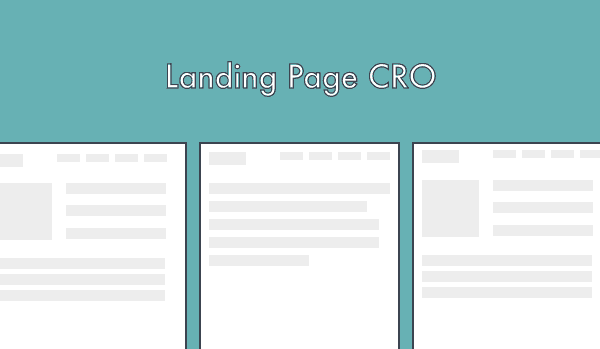
The best campaigns in the world have exceptional landing pages and are built to convert. While you can spend hours in AdWords, Bing, programmatic, and other ad networks, the real work needs to be in honing in your design, copy, value proposition and call to action.
Great design is critical. So often, we focus on new user acquisition but devalue the conversion process. In B2B, there are few things more important than the value your design portrays of your service or product. It’s your first impression and it holds a lot of weight.
People read. Constantly, we hear things like: “We want to do more imagery and creative. People don’t read anymore.” While exceptional design and creative is essential as mentioned above, people do read. In fact, they learn about your business and what differentiates you often by not only your ad copy but your headline. Words have power and it’s critical you thnk about: “What does my landing page copy communicate to my audience?”
Across multiple campaigns, we consistently find that testing your value proposition and call to actions (CTAs) are the most impactful things you can do to increase your return on ad spend. Here are a few examples of this briefly:


In both of these tests, we simply changed our call to action/value proposition we were pitching. In each instance, we experienced massive improvements. With such a low time-to-reward commitment this is an area to focus on immediately.
Conclusion

While this post has been fairly extensive, there are countless B2B marketing and demand generation topics not covered in this piece. For additional reading, I have outlined some great resources:
- Engagio: www.engagio.com/clear-and-complete-guide-to-account-based-sales-development/
- Radius: https://radius.com/resources/
- B2B Marketing: https://www.b2bmarketing.net/
For industry studies/reports and more best-in-class B2B search marketing content please subscribe to our blog.


